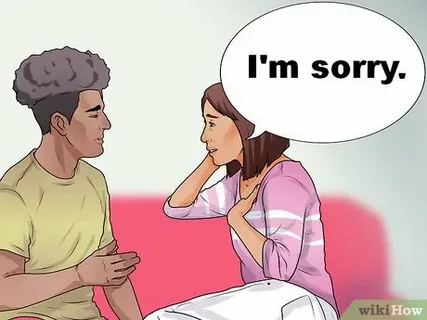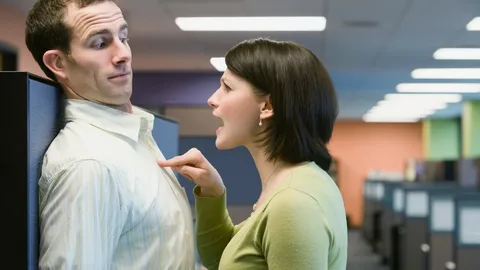6 Apology mistakes that hurt your relationship can leave lasting emotional damage and deepen conflict. From avoiding responsibility to rushing forgiveness, the way you say “I’m sorry” matters more than you think. Learn how to avoid these 6 common mistakes and rebuild trust with genuine, healing communication.

lntroduction
Apologizing may seem simple, but when done wrong, it can do more harm than good—especially in a close relationship. Many couples and partners believe that just saying “I’m sorry” is enough to resolve conflict. However, the way you apologize matters just as much as the words themselves. An ineffective or insincere apology can damage trust, deepen wounds, and create emotional distance.
In this blog post, we’ll dive deep into six common apology mistakes that can hurt your relationshiphttps://bahlonhealshearts.com/understanding-relationships/ and how to replace them with meaningful, healing communication. Whether you’re apologizing to a partner, friend, or loved one, learning the right way to say sorry can make all the difference.

1. Saying “I’m Sorry” Without Taking Responsibility
One of the most common apology mistakes is offering a vague or hollow “I’m sorry” without actually taking responsibility for what went wrong.https://bemorewithless.com/relationship-mistakes/
Why It Hurts:
When you don’t clearly acknowledge your role in the issue, the other person may feel invalidated. They might think you don’t understand or accept the impact of your actions, which can breed resentment.

Example:
Bad apology: “I’m sorry you feel that way.”
Better apology: “I’m sorry I raised my voice during our argument. That was hurtful, and I take responsibility for that.”
Fix It:
Be specific. Name what you did wrong, and show that you understand why it hurt the other person. Responsibility is the foundation of real healing.
2. Adding “But” to Your Apology
When you say, “I’m sorry, but…”, you’re essentially justifying your behavior or shifting blame, which weakens your apology.

Why It Hurts:
Adding “but” dismisses the apology and makes it seem like you’re making excuses rather than being truly remorseful. It turns the focus back to yourself rather than the hurt you caused.
Example:
Bad apology: “I’m sorry I was late, but traffic was terrible.”
Better apology: “I’m really sorry for being late. I should have left earlier and planned better.”
Fix It:
Avoid using “but” and focus entirely on the impact your actions had. Own your mistake without deflecting.
3. Making It All About You
Sometimes people apologize only to relieve their own guilt, not because they want to repair the relationship. This can come across as selfish.
Why It Hurts:
When the apology centers around how you feel (guilty, ashamed, bad), rather than how the other person was hurt, it can feel self-serving and disingenuous.
Example:
Bad apology: “I just feel so terrible about what I did.”
Better apology: “I realize I hurt you deeply, and I’m here to understand your feelings and make it right.”
Fix It:
Shift the focus from yourself to the person you hurt. Ask how you can repair the damage and show empathy.
4. Expecting Instant Forgiveness
Some people apologize and then expect the other person to forgive them immediately. When forgiveness doesn’t come right away, they become frustrated or defensive.
Why It Hurts:
Healing takes time. Rushing or demanding forgiveness can pressure your partner, making them feel like their emotions are being dismissed.
Example:
Bad reaction: “I said I was sorry—what more do you want?”
Better approach: “I understand this hurt you, and I’ll be patient as you process it. I’m here when you’re ready to talk.”
Fix It:
Give the other person space. A true apology respects their emotional journey, even if it’s uncomfortable for you.
5. Not Changing the Behavior
A repeated mistake followed by the same apology becomes meaningless over time. If there’s no change, the words start to lose value.
Why It Hurts:
Apologies without changed behavior are empty. The other person begins to feel like you’re not truly sorry—or worse, that you don’t care enough to grow.
Example:
Bad pattern: Apologizing every time you cancel plans but never making an effort to follow through.
Better approach: Acknowledge the pattern and actively commit to doing better next time.
Fix It:
Make a sincere effort to change. Apologies should come with action. If you’re not working on the behavior, your words won’t hold weight.
6. Avoiding Emotional Depth
Sometimes people offer dry, robotic apologies to avoid emotional vulnerability. They say the right words, but without emotion, warmth, or connection.
Why It Hurts:
People can sense when an apology is emotionally disconnected. When your partner doesn’t feel your remorse or empathy, they’re unlikely to feel comforted or healed.
Example:
Bad apology: “Yeah, sorry. Won’t happen again.”
Better apology: “I truly regret what I said. I know it hurt you, and that matters deeply to me.”
Fix It:
Apologize from the heart. Look the person in the eyes. Speak slowly. Let your voice and body language reflect your sincerity.
Conclusion:
Apologizing is more than a social formality—it’s a powerful way to heal emotional wounds, rebuild trust, and strengthen your relationship. But when done carelessly, apologies can do more harm than good. By avoiding these six common mistakes, you show that you not only care about your partner’s feelings but that you’re committed to growing together.
Remember, a meaningful apology:
- Takes full responsibility
- Avoids excuses
- Centers on the other person’s experience
- Comes with patience and change
- Is delivered with genuine emotion
In love and life, it’s not about never making mistakes—it’s about how you handle them that counts.
FAQs
Why do apologies sometimes make things worse in a relationship?
Because when an apology lacks sincerity, responsibility, or empathy, it can feel dismissive or manipulative. It’s not just about saying the words—it’s about how they’re said and what follows after.
How do I know if my apology was accepted?
Watch your partner’s verbal and nonverbal cues. If they begin to soften, open up, or engage more, it’s a sign they’re moving toward forgiveness. Still, give them space and don’t rush the process.
What if my partner doesn’t accept my apology?
That’s okay. Apologies are about owning your actions—not controlling the other person’s reaction. Stay calm, give them time, and continue showing you care through consistent behavior.